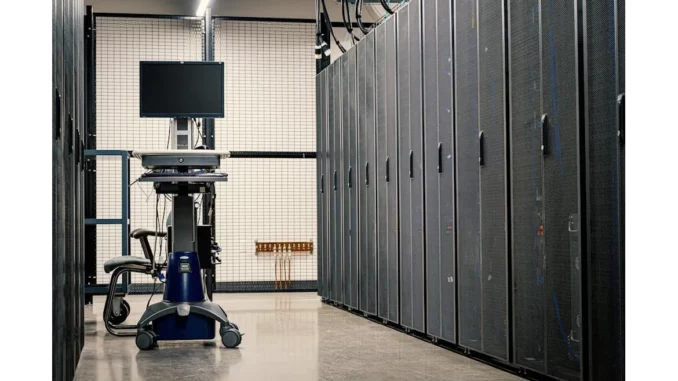
In a groundbreaking initiative poised to transform the cryptocurrency landscape, Kraken, one of the world’s leading crypto exchanges, is seriously considering harnessing nuclear energy to power its data centers. This bold move emerges amidst surging demand for decentralized finance (DeFi) services and an increasing dependency on high-performance computing (HPC) and artificial intelligence (AI) technologies, which necessitate substantial and reliable energy supplies.
The cryptocurrency industry has long faced criticism for its significant energy consumption, particularly due to the energy-intensive nature of proof-of-stake blockchains like Bitcoin. This has driven the search for more sustainable energy solutions. Nuclear energy, despite its own controversies, presents a promising alternative. Unlike traditional power sources, nuclear energy can provide a steady and reliable supply of electricity, crucial for the 24/7 operations of cryptocurrency platforms.
Kraken’s Chief Technical Officer, Vishnu Patankar, disclosed in an exclusive interview with CoinDesk that the company is exploring partnerships with energy providers capable of supplying small modular reactors (SMRs). These reactors are more compact and flexible than traditional nuclear power plants and can be co-located with data centers, thereby eliminating concerns related to space and weather conditions. “With institutions moving into the crypto asset class and activity moving on-chain, the need for reliable fiat onramps continues to grow,” Patankar explained. “Bolstering our energy resiliency means we strengthen a direct avenue into the crypto ecosystem, supporting its continued growth.”
Kraken is focusing its nuclear energy exploration efforts in North America and Europe, regions witnessing a surge in demand from AI and HPC firms. This surge is reshaping the power stability landscape, making it imperative for Kraken to secure a dependable energy supply. “Crypto’s round-the-clock and global nature means Kraken needs a constant supply of energy, particularly as we facilitate a larger proportion of global trading volumes,” Patankar said. The anticipated mass adoption of crypto over time necessitates a scalable energy solution that can meet the demands of a rapidly growing user base.
The concept of using nuclear energy is not entirely novel within the tech industry. The Wall Street Journal recently reported that several tech giants, including Amazon Web Services, are seeking contracts with nuclear plants to power their data centers. This trend underscores the increasing recognition of nuclear power as a viable solution for the energy needs of high-tech operations.
For Kraken, the adoption of nuclear energy could provide a significant competitive advantage. A nuclear backup would ensure that the exchange can continue to operate even in the face of major disruptions to the local energy supply. This added redundancy would protect Kraken’s energy resiliency, enabling it to offer uninterrupted products and services to its global clientele. Patankar emphasized that Kraken is anticipating a substantial boom in DeFi, which would exponentially increase the firm’s energy requirements. Whether it’s running nodes for validators or processing transactions, the energy demands of a burgeoning DeFi ecosystem are immense.
While a final decision has yet to be made, Kraken is seriously considering nuclear power as a viable option. Other renewable energy sources, such as wind and solar, are weather-dependent and pose challenges related to energy storage. Nuclear energy, on the other hand, offers a more stable and reliable alternative. A common criticism of the crypto industry revolves around its high energy usage, with proof-of-stake blockchains like Bitcoin requiring extensive processing power. Nuclear energy also suffers from negative perceptions, albeit for different reasons. However, in this context, it might present a more environmentally friendly solution. Any excess energy generated by the reactors can be captured and used to power the cooling systems of the data centers.
As Kraken continues to explore this innovative energy solution, it sets a precedent for other crypto exchanges and tech companies to consider sustainable and reliable power sources. The potential shift to nuclear energy could mark a significant step forward in addressing the energy challenges faced by the crypto industry, paving the way for a more resilient and sustainable future.

Be the first to comment